McCormick Flavor Forecast Reveals Eight Trends for 2015
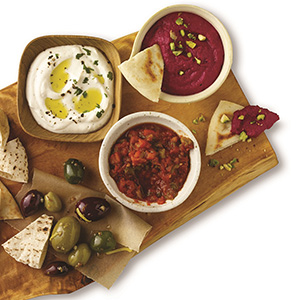 15th-annual report highlights top tastes driving the future of flavor and menu innovation.
15th-annual report highlights top tastes driving the future of flavor and menu innovation.
Sparks, Md.-based McCormick & Company releases its McCormick® Flavor Forecast® 2015, highlighting eight enticing trends that will shape the future of flavor. Now in its 15th year, the much-anticipated report drives flavor innovation and exploration throughout the food industry and in professional kitchens everywhere.
Reflecting the rapidly increasing demand for bolder, more intense flavor experiences, the McCormick Flavor Forecast 2015 pinpoints adventurous global tastes on the rise. The report also showcases new ways to elevate pantry essentials to starring roles.

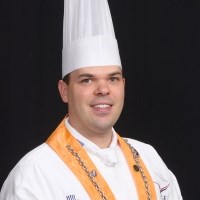 AI Pittsburgh instructor Culp helped Culinary Team USA place third overall in Luxembourg, while U.S. chef-educators in individual competition represented their nation well.
AI Pittsburgh instructor Culp helped Culinary Team USA place third overall in Luxembourg, while U.S. chef-educators in individual competition represented their nation well.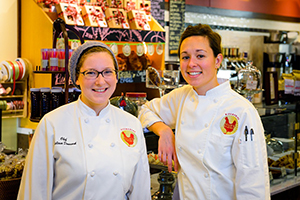 An award-winning pastry chef and talented baker and cake artist bring their seasonally inspired, artisanal confections to life at this Parisian-style Rhode Island bakery.
An award-winning pastry chef and talented baker and cake artist bring their seasonally inspired, artisanal confections to life at this Parisian-style Rhode Island bakery. ’Tis the season, says Chef Weiner, who among other things suggests a “Build a Gingerbread House” station to raise needed funds for programs.
’Tis the season, says Chef Weiner, who among other things suggests a “Build a Gingerbread House” station to raise needed funds for programs. In his final installment in a series on student assessment, Dr. Mayo says it is increasingly important to explain to students the criteria we use in grading. Not only does doing so make our jobs easier, but it is only fair to tell students ahead of time how they are going to be evaluated.
In his final installment in a series on student assessment, Dr. Mayo says it is increasingly important to explain to students the criteria we use in grading. Not only does doing so make our jobs easier, but it is only fair to tell students ahead of time how they are going to be evaluated.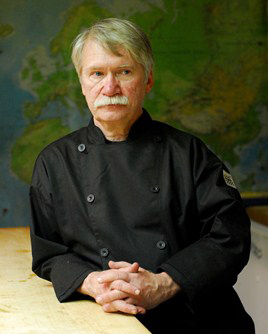 Employers seek graduates who follow directives, have a strong foundation of technical skills and enthusiastically respond, “Yes, Chef.” Yet knowing the “why” and “how to” is as important a skill as the actual process of completing a task.
Employers seek graduates who follow directives, have a strong foundation of technical skills and enthusiastically respond, “Yes, Chef.” Yet knowing the “why” and “how to” is as important a skill as the actual process of completing a task. A free classroom offer to teach students why menuing domestically raised fish and seafood is an important way to keep both customers and the bottom line happy.
A free classroom offer to teach students why menuing domestically raised fish and seafood is an important way to keep both customers and the bottom line happy.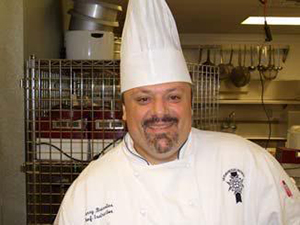 Le Cordon Bleu College of Culinary Arts in Los Angeles, Pasadena, Calif., is mourning the loss of a beloved educator. Chef instructor Larry Bressler, 50, and his wife, Denise, 64, passed away on Oct. 13, 2014. Bressler was a longtime instructor and friend to many at Le Cordon Bleu, known as a kind, fun-loving person with as much passion and zest for music as he had for food. He was also the general manager of Chefs Center, a commercial kitchen-rental space that helped launch many successful local businesses. From 1995 to 2003, Bressler was chef and owner of 50-seat Gerard’s, a French bistro in Riverside.
Le Cordon Bleu College of Culinary Arts in Los Angeles, Pasadena, Calif., is mourning the loss of a beloved educator. Chef instructor Larry Bressler, 50, and his wife, Denise, 64, passed away on Oct. 13, 2014. Bressler was a longtime instructor and friend to many at Le Cordon Bleu, known as a kind, fun-loving person with as much passion and zest for music as he had for food. He was also the general manager of Chefs Center, a commercial kitchen-rental space that helped launch many successful local businesses. From 1995 to 2003, Bressler was chef and owner of 50-seat Gerard’s, a French bistro in Riverside.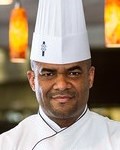 Two chefs have joined the ranks of an elite group of Certified Master Chefs (CMC) following an eight-day exam from Oct. 26 to Nov. 2. The new Certified Master Chefs are:
Two chefs have joined the ranks of an elite group of Certified Master Chefs (CMC) following an eight-day exam from Oct. 26 to Nov. 2. The new Certified Master Chefs are: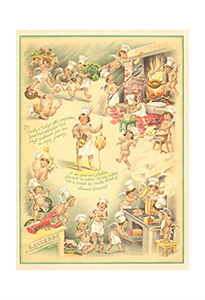 The Culinary Institute of America has partnered with Cool Culinaria to bring the CIA’s extensive collection of more than 30,000 menus to new audiences in the form of archival prints, notecards, coasters, mugs, tea towels, placemats and other products.
The Culinary Institute of America has partnered with Cool Culinaria to bring the CIA’s extensive collection of more than 30,000 menus to new audiences in the form of archival prints, notecards, coasters, mugs, tea towels, placemats and other products.